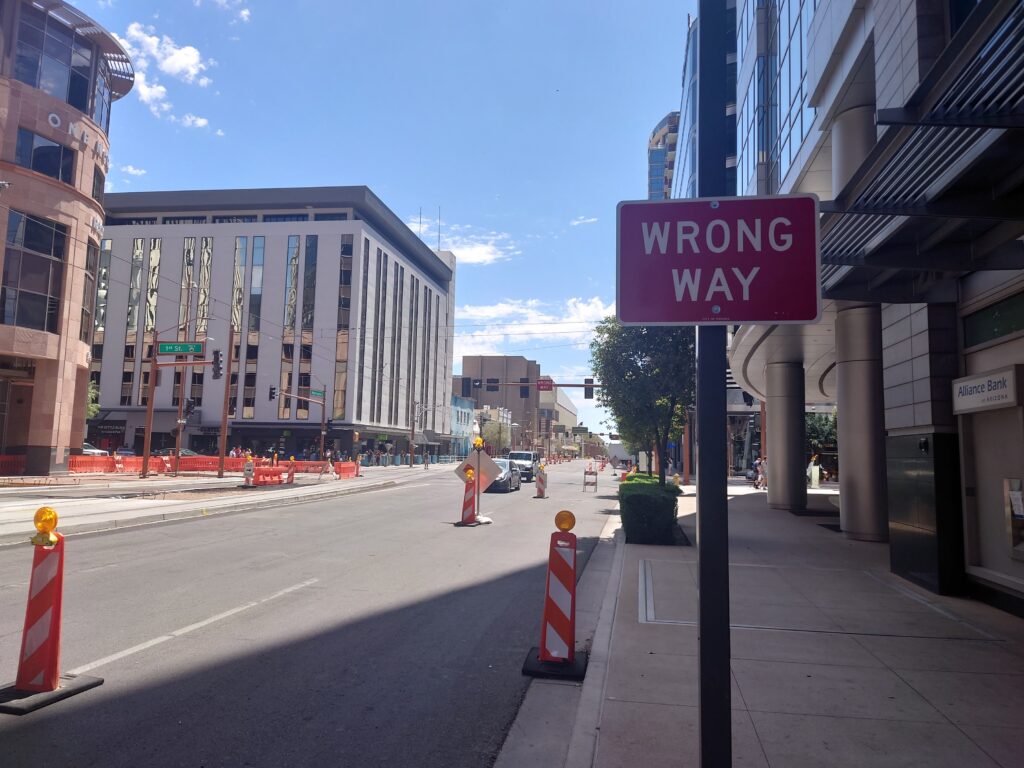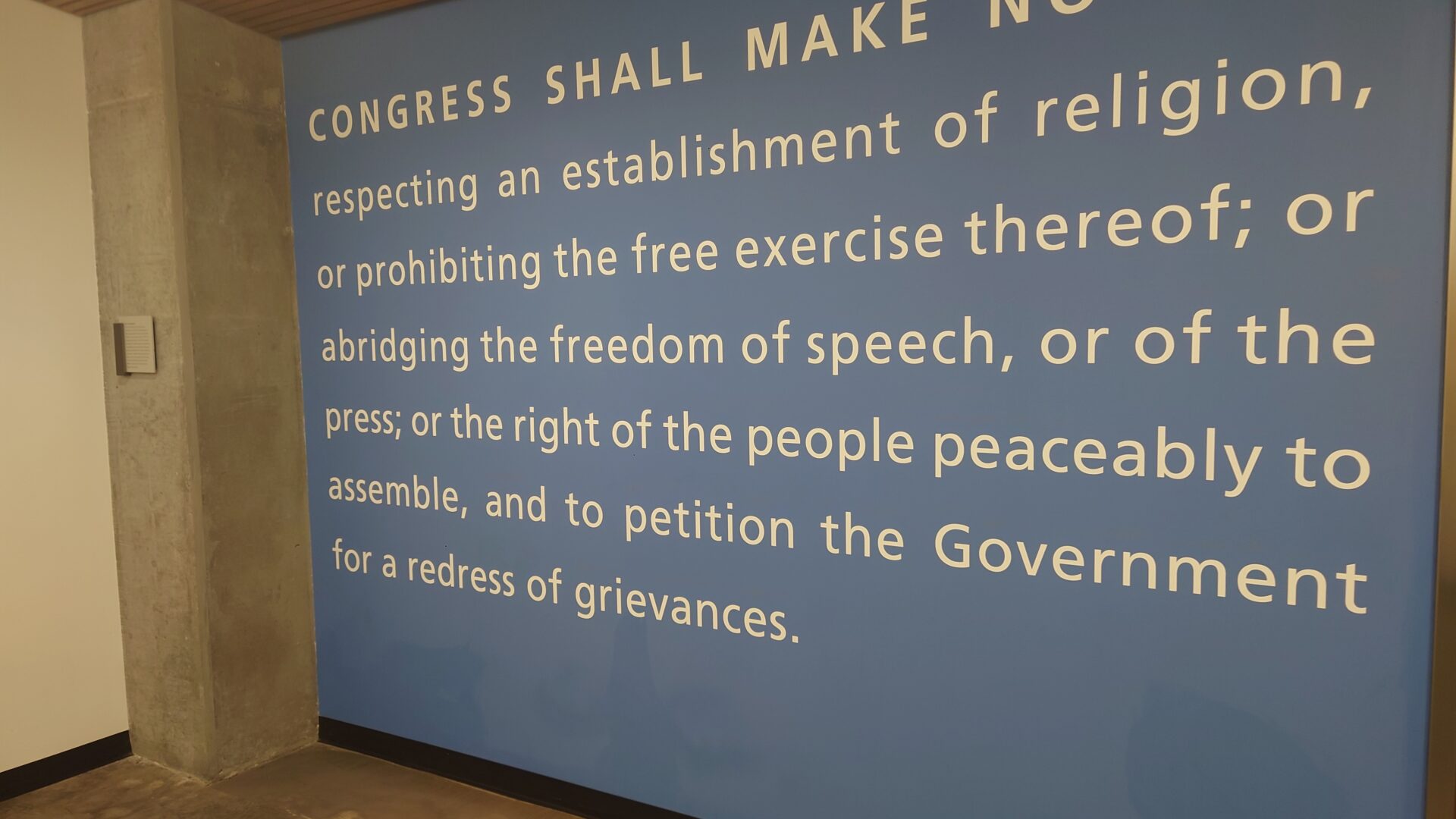As the most important law protecting freedom of the press in the U.S., the name “First Amendment” seems quite strange to me at first glance. Amendment? That means this clause was not included originally in the U.S. Constitution. Why not? After the first lesson from Mr. Daniel Barr, I have learned more about the historical background of the formulation of the US Constitution. The U.S. founding fathers were trying their best to make a balance between having a government that can govern effectively and protecting every individual’s basic rights. They noticed that the original version of the constitution was not good enough to protect people’s rights, worrying that the state had too much power over controlling people’s expression. That’s why they proposed an amendment for that.
In this sense, an amendment is a good thing. “Amendment” reminds us that we are all limited human beings. We make mistakes. Not perfect. That’s why there are always construction sites around the city. It’s inconvenient when we are walking around the downtown area, but we know there will be a better way of living in this city with its modified infrastructure. Not only visible infrastructure needs repairing: We need each other to reform the society system we are living in. No one is absolutely perfect to hold all the power, to make all the decisions. That echoed with J.S. Mill’s famous quote in On Liberty, “All silencing of discussion is an assumption of infallibility.” That’s why the U.S. government system strongly emphasizes separation of powers. Dan guided us to understand how power is distributed among different levels of government: federal, state, county and local levels.

My First Lesson on Levels of Government: 8.6% sales tax
Before learning from Dan, my first encounter with different levels of governments here indeed was buying goods: the tax. As a financial journalism educator and researcher, I was curious about the components of the 8.6% tax rate (remember that tax is not included in the price tags of products sold at Fry’s) applied to all my bills paid in Phoenix. After googling it, I found that there are indeed three components of the 8.6% sales tax rate: Arizona state tax (5.6%) + Maricopa County (0.7%) + Phoenix (2.3%). From a consumer perspective, we may not feel good about being taxed at different levels of government. Similar taxation practices can be observed all over the world. Many people also do not like the complicated bureaucracy caused by the division of labor among different government departments and levels of government. But if we think about it another way, with patience, more appreciation could be given to the system that protects everyone from being dominated by any single power.
Amendments should also be made in supporting the journalism community and funding quality journalism as a public service. In our afternoon session, Ms. Rebekah Sanders and Ms. Renata Clo, two journalism practitioners in the field, introduced us to the difficulties faced by frontline journalists, especially women and people of color. It is a pity that more and more experienced investigative journalists have left the journalism field because of cost of living considerations. It is worthwhile for all of us to work out a solution together to have a better business model and profit distribution mechanism for journalism that could be beneficial for all stakeholders including business owners, investors, employers, consumers and the public.
Again, we don’t have a perfect system right now. Obviously, more amendments should be put forth to make our society better. But I believe, if everyone can humbly adopt the “amendment” mindset, willing to listen to each other’s needs, everyone will enjoy a better version of society as well as having a better version of ourselves. This “amendment” mindset is what our polarized world needs right now.
